Peter is the figure best known and most frequently cited in the New Testament writing
After Jesus, Peter is the figure best known and most frequently cited in the New Testament writings: he is mentioned 154 times with the nickname of Pétros, “rock”, which is the Greek translation of the Aramaic name Jesus gave him directly: Cephas, attested to nine times, especially in Paul’s Letters; then the frequently occurring name Simon (75 times) must be added; this is a hellenization of his original Hebrew name “Symeon” (twice: Acts 15: 14; II Pt 1: 1).
I
Peter, the fisherman
Son of John (cf. Jn 1: 42) or, in the Aramaic form, “Bar-Jona, son of Jona” (cf. Mt 16: 17), Simon was from Bethsaida (cf. Jn 1: 44), a little town to the east of the Sea of Galilee, from which Philip also came and of course, Andrew, the brother of Simon.
He spoke with a Galilean accent. Like his brother, he too was a fisherman: with the family of Zebedee, the father of James and John, he ran a small fishing business on the Lake of Gennesaret (cf. Lk 5: 10). Thus, he must have been reasonably well-off and was motivated by a sincere interest in religion, by a desire for God – he wanted God to intervene in the world -, a desire that impelled him to go with his brother as far as Judea to hear the preaching of John the Baptist (Jn 1: 35-42).
He was a believing and practising Jew who trusted in the active presence of God in his people’s history and grieved not to see God’s powerful action in the events he was witnessing at that time. He was married and his mother-in-law, whom Jesus was one day to heal, lived in the city of Capernaum, in the house where Simon also stayed when he was in that town (cf. Mt 8: 14ff.; Mk 1: 29ff.; Lk 4: 38ff.).
Recent archaeological excavations have brought to light, beneath the octagonal mosaic paving of a small Byzantine church, the remains of a more ancient church built in that house, as the graffiti with invocations to Peter testify.
The Gospels tell us that Peter was one of the first four disciples of the Nazarene (cf. Lk 5: 1-11), to whom a fifth was added, complying with the custom of every Rabbi to have five disciples (cf. Lk 5: 27: called Levi). When Jesus went from five disciples to 12 (cf. Lk 9: 1-6), the newness of his mission became evident: he was not one of the numerous rabbis but had come to gather together the eschatological Israel, symbolized by the number 12, the number of the tribes of Israel.
Simon appears in the Gospels with a determined and impulsive character: he is ready to assert his own opinions even with force (remember him using the sword in the Garden of Olives: cf. Jn 18: 10ff.). At the same time he is also ingenuous and fearful, yet he is honest, to the point of the most sincere repentance (cf. Mt 26: 75).
The Gospels enable us to follow Peter step by step on his spiritual journey. The starting point was Jesus’ call. It happened on an ordinary day while Peter was busy with his fisherman’s tasks. Jesus was at the Lake of Gennesaret and crowds had gathered around him to listen to him. The size of his audience created a certain discomfort. The Teacher saw two boats moored by the shore; the fishermen had disembarked and were washing their nets. He then asked permission to board the boat, which was Simon’s, and requested him to put out a little from the land. Sitting on that improvised seat, he began to teach the crowds from the boat (cf. Lk 5: 1-3). Thus, the boat of Peter becomes the chair of Jesus.
When he had finished speaking he said to Simon: “Put out into the deep and let down your nets for a catch”. And Simon answered, “Master, we toiled all night and took nothing! But at your word I will let down the nets” (Lk 5: 4-5). Jesus, a carpenter, was not a skilled fisherman: yet Simon the fisherman trusted this Rabbi, who did not give him answers but required him to trust him.
His reaction to the miraculous catch showed his amazement and fear: “Depart from me, for I am a sinful man, O Lord” (Lk 5: 8). Jesus replied by inviting him to trust and to be open to a project that would surpass all his expectations. “Do not be afraid; henceforth, you will be catching men” (Lk 5: 10). Peter could not yet imagine that one day he would arrive in Rome and that here he would be a “fisher of men” for the Lord. He accepted this surprising call, he let himself be involved in this great adventure: he was generous; he recognized his limits but believed in the one who was calling him and followed the dream of his heart. He said “yes”, a courageous and generous “yes”, and became a disciple of Jesus.
Peter was to live another important moment of his spiritual journey near Caesarea Philippi when Jesus asked the disciples a precise question: “Who do men say that I am?” (Mk 8: 27). But for Jesus hearsay did not suffice. He wanted from those who had agreed to be personally involved with him a personal statement of their position. Consequently, he insisted: “But who do you say that I am?” (Mk 8: 29).
It was Peter who answered on behalf of the others: “You are the Christ” (ibid.), that is, the Messiah. Peter’s answer, which was not revealed to him by “flesh and blood” but was given to him by the Father who is in heaven (cf. Mt 16: 17), contains as in a seed the future confession of faith of the Church. However, Peter had not yet understood the profound content of Jesus’ Messianic mission, the new meaning of this word: Messiah.
He demonstrates this a little later, inferring that the Messiah whom he is following in his dreams is very different from God’s true plan. He was shocked by the Lord’s announcement of the Passion and protested, prompting a lively reaction from Jesus (cf. Mk 8: 32-33).
Peter wanted as Messiah a “divine man” who would fulfil the expectations of the people by imposing his power upon them all: we would also like the Lord to impose his power and transform the world instantly. Jesus presented himself as a “human God”, the Servant of God, who turned the crowd’s expectations upside-down by taking a path of humility and suffering.
This is the great alternative that we must learn over and over again: to give priority to our own expectations, rejecting Jesus, or to accept Jesus in the truth of his mission and set aside all too human expectations.
Peter, impulsive as he was, did not hesitate to take Jesus aside and rebuke him. Jesus’ answer demolished all his false expectations, calling him to conversion and to follow him: “Get behind me, Satan! For you are not on the side of God, but of men” (Mk 8: 33). It is not for you to show me the way; I take my own way and you should follow me.
Peter thus learned what following Jesus truly means. It was his second call, similar to Abraham’s in Genesis 22, after that in Genesis 12: “If any man would come after me, let him deny himself and take up his cross and follow me. For whoever would save his life will lose it; and whoever loses his life for my sake and the Gospel’s will save it” (Mk 8: 34-35). This is the demanding rule of the following of Christ: one must be able, if necessary, to give up the whole world to save the true values, to save the soul, to save the presence of God in the world (cf. Mk 8: 36-37). And though with difficulty, Peter accepted the invitation and continued his life in the Master’s footsteps.
And it seems to me that these conversions of St Peter on different occasions, and his whole figure, are a great consolation and a great lesson for us. We too have a desire for God, we too want to be generous, but we too expect God to be strong in the world and to transform the world on the spot, according to our ideas and the needs that we perceive.
God chooses a different way. God chooses the way of the transformation of hearts in suffering and in humility. And we, like Peter, must convert, over and over again. We must follow Jesus and not go before him: it is he who shows us the way.
So it is that Peter tells us: You think you have the recipe and that it is up to you to transform Christianity, but it is the Lord who knows the way. It is the Lord who says to me, who says to you: follow me! And we must have the courage and humility to follow Jesus, because he is the Way, the Truth and the Life.
II
Peter, the apostle
We examined two decisive stages of his life: the call [to follow Jesus] near the Sea of Galilee, and then the confession of faith: “You are Christ, the Messiah”. It is a confession, we said, that is still lacking, initial and yet open. St Peter puts himself on a path of “sequela”, following. And so, this initial confession carries within it, like a seed, the future faith of the Church.
Today, we want to consider another two important events in the life of St Peter: the multiplication of the loaves – we heard the Lord’s question and St Peter’s reply in the Gospel passage just read – and then the Lord who calls Peter to be Pastor of the universal Church.
Let us now begin with the multiplication of the loaves. You know that the people had been listening to the Lord for hours. At the end, Jesus says: They are tired and hungry, we must give these people something to eat. The Apostles ask: But how? And Andrew, Peter’s brother, draws Jesus’ attention to a boy who had with him five loaves of bread and two fish. But what is this for so many people, the Apostles ask.
The Lord has the crowd be seated and these five loaves and two fish distributed. And the hunger of everyone is satisfied; what is more, the Lord gives the Apostles – Peter among them – the duty to collect the abundant leftovers: 12 baskets of bread (cf. Jn 6: 12-13).
Afterwards, the people, seeing this miracle – that seemed to be the much-awaited renewal of a new “manna”, of the gift of bread from heaven -, wanted to make him king. But Jesus does not accept and withdraws into the hills by himself to pray. The following day, on the other side of the lake in the Synagogue of Capernaum, Jesus explained the miracle – not in the sense of a kingship over Israel with a worldly power in the way the crowds hoped, but in the sense of the gift of self: “The bread which I shall give for the life of the world is my flesh” (Jn 6: 51).
Jesus announces the Cross and with the Cross the true multiplication of the loaves, the Eucharistic bread – his absolutely new way of kingship, a way completely contrary to the expectations of the people.
We can understand that these words of the Master, who does not want to multiply bread every day, who does not want to offer Israel a worldly power, would be really difficult, indeed, unacceptable, for the people. “He gives his flesh”: what does this mean?
Even for the disciples what Jesus says in this moment seems unacceptable. It was and is for our heart, for our mentality, a “hard saying” which is a trial of faith (cf. Jn 6: 60). Many of the disciples went away. They wanted someone who would truly renew the State of Israel, of his people, and not one who said: “I give my flesh”.
We can imagine that the words of Jesus were difficult for Peter too, who at Caesarea Philippi he protested at the prophesy of the Cross. However, when Jesus asked the Twelve: “Will you also go away?”, Peter reacted with the enthusiasm of his generous heart, guided by the Holy Spirit.
Speaking on everyone’s behalf, he answered with immortal words, which are also our words: “Lord, to whom shall we go? You have the words of eternal life; and we have believed, and have come to know, that you are the Holy One of God” (cf. Jn 6: 66-69).
Here, like at Caesarea, Peter begins with his words the confession of the Church’s Christological faith and becomes spokesman also for the other Apostles, and of we believers of all times. This does not mean that he had already understood the mystery of Christ in all its depth; his faith was still at the beginning of a journey of faith. It would reach its true fullness only through the experience of the Paschal events.
Nonetheless, it was already faith, open to the greatest reality; open especially because it was not faith in something, it was faith in Someone: in him, Christ.
And so, our faith too is always an initial one and we have still to carry out a great journey. But it is essential that it is an open faith and that we allow ourselves to be led by Jesus, because he does not only know the Way, but he is the Way.
Peter’s rash generosity does not protect him, however, from the risks connected with human weakness. Moreover, it is what we too can recognize in our own lives. Peter followed Jesus with enthusiasm, he overcame the trial of faith, abandoning himself to Christ. The moment comes, however, when he gives in to fear and falls: he betrays the Master (cf. Mk 14: 66-72).
The school of faith is not a triumphal march but a journey marked daily by suffering and love, trials and faithfulness. Peter, who promised absolute fidelity, knew the bitterness and humiliation of denial: the arrogant man learns the costly lesson of humility. Peter, too, must learn that he is weak and in need of forgiveness.
Once his attitude changes and he understands the truth of his weak heart of a believing sinner, he weeps in a fit of liberating repentance. After this weeping he is finally ready for his mission.
On a spring morning, this mission will be entrusted to him by the Risen Christ. The encounter takes place on the shore of the Lake of Tiberias. John the Evangelist recounts the conversation between Jesus and Peter in that circumstance. There is a very significant play on words.
In Greek, the word “fileo” means the love of friendship, tender but not all-encompassing; instead, the word “agapao” means love without reserve, total and unconditional. Jesus asks Peter the first time: “Simon… do you love me (agapas-me)” with this total and unconditional love (Jn 21: 15)?
Prior to the experience of betrayal, the Apostle certainly would have said: “I love you (agapo-se) unconditionally”. Now that he has known the bitter sadness of infidelity, the drama of his own weakness, he says with humility: “Lord; you know that I love you (filo-se)”, that is, “I love you with my poor human love”. Christ insists: “Simon, do you love me with this total love that I want?”. And Peter repeats the response of his humble human love: “Kyrie, filo-se”, “Lord, I love you as I am able to love you”. The third time Jesus only says to Simon: “Fileis-me?”, “Do you love me?”.
Simon understands that his poor love is enough for Jesus, it is the only one of which he is capable, nonetheless he is grieved that the Lord spoke to him in this way. He thus replies: “Lord, you know everything; you know that I love you (filo-se)”.
This is to say that Jesus has put himself on the level of Peter, rather than Peter on Jesus’ level! It is exactly this divine conformity that gives hope to the Disciple, who experienced the pain of infidelity.
From here is born the trust that makes him able to follow [Christ] to the end: “This he said to show by what death he was to glorify God. And after this he said to him, “Follow me'” (Jn 21: 19).
From that day, Peter “followed” the Master with the precise awareness of his own fragility; but this understanding did not discourage him. Indeed, he knew that he could count on the presence of the Risen One beside him.
From the naïve enthusiasm of initial acceptance, passing though the sorrowful experience of denial and the weeping of conversion, Peter succeeded in entrusting himself to that Jesus who adapted himself to his poor capacity of love. And in this way he shows us the way, notwithstanding all of our weakness. We know that Jesus adapts himself to this weakness of ours.
We follow him with our poor capacity to love and we know that Jesus is good and he accepts us.
It was a long journey for Peter that made him a trustworthy witness, “rock” of the Church, because he was constantly open to the action of the Spirit of Jesus.
Peter qualifies himself as a “witness of the sufferings of Christ as well as a partaker in the glory that is to be revealed” (I Pt 5: 1). When he was to write these words he would already be elderly, heading towards the end of his life that will be sealed with martyrdom. He will then be ready to describe true joy and to indicate where it can be drawn from: the source is believing in and loving Christ with our weak but sincere faith, notwithstanding our fragility.
He would therefore write to the Christians of his community, and says also to us: “Without having seen him you love him; though you do not now see him you believe in him and rejoice with unutterable and exalted joy. As the outcome of your faith you obtain the salvation of your souls” (I Pt 1: 8-9).
III
Peter, the rock
In recounting Jesus’ first meeting with Simon, the brother of Andrew, John the Evangelist records a unique event: Jesus “looked at him and said, “So you are Simon the son of John? You shall be called Cephas (which means Peter)'” (Jn 1: 42).
It was not Jesus’ practice to change his disciples’ names: apart from the nickname “sons of thunder”, which in specific circumstances he attributed to the sons of Zebedee (cf. Mk 3: 17) and never used again. He never gave any of his disciples a new name.
Yet, he gave one to Simon, calling him “Cephas”. This name was later translated into Greek as Petros and into Latin as Petrus. And it was translated precisely because it was not only a name; it was a “mandate” that Petrus received in that way from the Lord. The new name Petrus was to recur frequently in the Gospels and ended by replacing “Simon”, his original name.
This fact acquires special importance if one bears in mind that in the Old Testament, a change of name usually preceded the entrustment of a mission (cf. Gn 17: 5; 32: 28ff., etc.).
Indeed, many signs indicate Christ’s desire to give Peter special prominence within the Apostolic College: in Capernaum the Teacher enters Peter’s house (cf. Mk 1: 29); when the crowd becomes pressed on the shore of Lake Genesaret, seeing two boats moored there, Jesus chooses Simon’s (cf. Lk 5: 3); when, on certain occasions, Jesus takes only three disciples with him, Peter is always recorded as the first of the group: as in the raising of Jairus’ daughter (cf. Mk 5: 37; Lk 8: 51), in the Transfiguration (cf. Mk 9: 2; Mt 17: 1; Lk 9: 28) and during the agony in the Garden of Gethsemane (cf. Mk 14: 33; Mt 26: 37). And again: the Temple tax collectors address Peter and the Teacher pays only for himself and Peter (cf. Mt 17: 24-27); it is Peter’s feet that he washes first at the Last Supper (cf. Jn 13: 6), and for Peter alone he prays that his faith will not fail so that he will be able to strengthen the other disciples in faith (cf. Lk 22: 30-31).
Moreover, Peter himself was aware of his special position: he often also spoke on behalf of the others, asking for the explanation of a difficult parable (cf. Mt 15: 15), the exact meaning of a precept (cf. Mt 18: 21) or the formal promise of a reward (cf. Mt 19: 27).
It is Peter in particular who resolves certain embarrassing situations by intervening on behalf of all. Thus, when Jesus, saddened by the misunderstanding of the crowd after the Bread of Life discourse, asks: “Will you also go away?”, Peter’s answer is peremptory in tone: “Lord, to whom shall we go? You have the words of eternal life” (cf. Jn 6: 67-69).
Equally decisive is the profession of faith which, again on behalf of the Twelve, he makes near Caesarea Philippi. To Jesus’ question: “But who do you say that I am?”, Peter answers: “You are the Christ, the Son of the living God” (Mt 16: 15-16). Jesus responded by pronouncing the solemn declaration that defines Peter’s role in the Church once and for all: “And I tell you: you are Peter, and on this rock I will build my Church…. I will give you the keys of the Kingdom of Heaven, and whatever you bind on earth will be bound in heaven, and whatever you loose on earth will be loosed in heaven” (Mt 16: 18-19).
In themselves, the three metaphors that Jesus uses are crystal clear: Peter will be the rocky foundation on which he will build the edifice of the Church; he will have the keys of the Kingdom of Heaven to open or close it to people as he sees fit; lastly, he will be able to bind or to loose, in the sense of establishing or prohibiting whatever he deems necessary for the life of the Church. It is always Christ’s Church, not Peter’s.
Thus, vivid images portray what the subsequent reflection will describe by the term: “primacy of jurisdiction”.
This pre-eminent position that Jesus wanted to bestow upon Peter is also encountered after the Resurrection: Jesus charges the women to announce it especially to Peter, as distinct from the other Apostles (cf. Mk 16: 7); it is to Peter and John that Mary Magdalene runs to tell them that the stone has been rolled away from the entrance to the tomb (cf. Jn 20: 2), and John was to stand back to let Peter enter first when they arrived at the empty tomb (cf. Jn 20: 4-6).
Then, Peter was to be the first witness of an appearance of the Risen One (cf. Lk 24: 34; I Cor 15: 5). His role, decisively emphasized (cf. Jn 20: 3-10), marks the continuity between the pre-eminence he had in the group of the Apostles and the pre-eminence he would continue to have in the community born with the paschal events, as the Book of Acts testifies (cf. 1: 15-26; 2: 14-40; 3: 12-26; 4: 8-12; 5: 1-11, 29; 8: 14-17; 10; etc.).
His behaviour was considered so decisive that it prompted remarks as well as criticism (cf. Acts 11: 1-18; Gal 2: 11-14).
At the so-called Council of Jerusalem Peter played a directive role (cf. Acts 15; Gal 2: 1-10), and precisely because he was a witness of authentic faith, Paul himself recognized that he had a certain quality of “leadership” (cf. I Cor 15: 5; Gal 1: 18; 2: 7ff., etc.).
Moreover, the fact that several of the key texts that refer to Peter can be traced back to the context of the Last Supper, during which Christ conferred upon Peter the ministry of strengthening his brethren (cf. Lk 22: 31ff.), shows that the ministry entrusted to Peter was one of the constitutive elements of the Church, which was born from the commemoration of the Pasch celebrated in the Eucharist.
This contextualization of the Primacy of Peter at the Last Supper, at the moment of the Institution of the Eucharist, the Lord’s Pasch, also points to the ultimate meaning of this Primacy: Peter must be the custodian of communion with Christ for all time. He must guide people to communion with Christ; he must ensure that the net does not break, and consequently that universal communion endures. Only together can we be with Christ, who is Lord of all.
Thus, Peter is responsible for guaranteeing communion with Christ with the love of Christ, guiding people to fulfil this love in everyday life. Let us pray that the Primacy of Peter, entrusted to poor human beings, will always be exercised in this original sense as the Lord desired, and that its true meaning will therefore always be recognized by the brethren who are not yet in full communion with us.
Benedict XVI

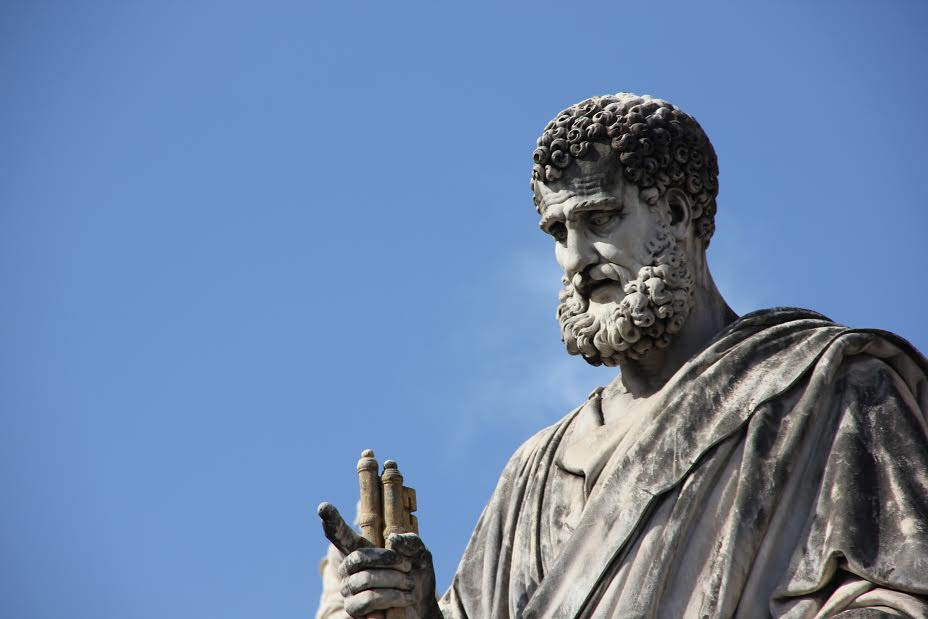

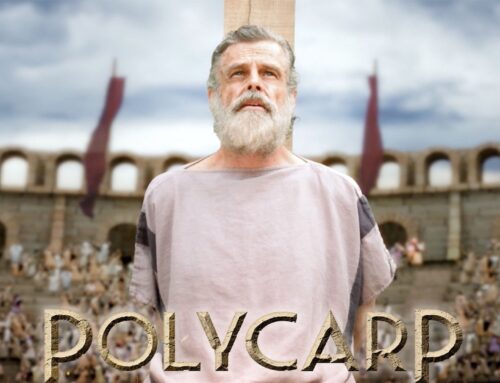
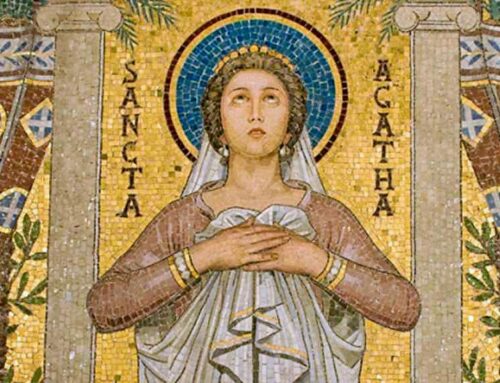
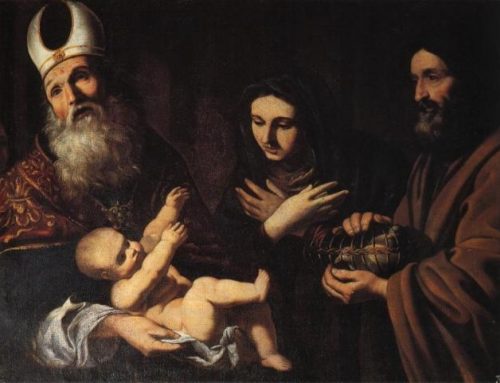
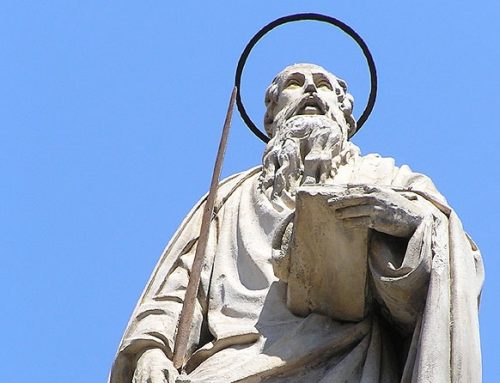
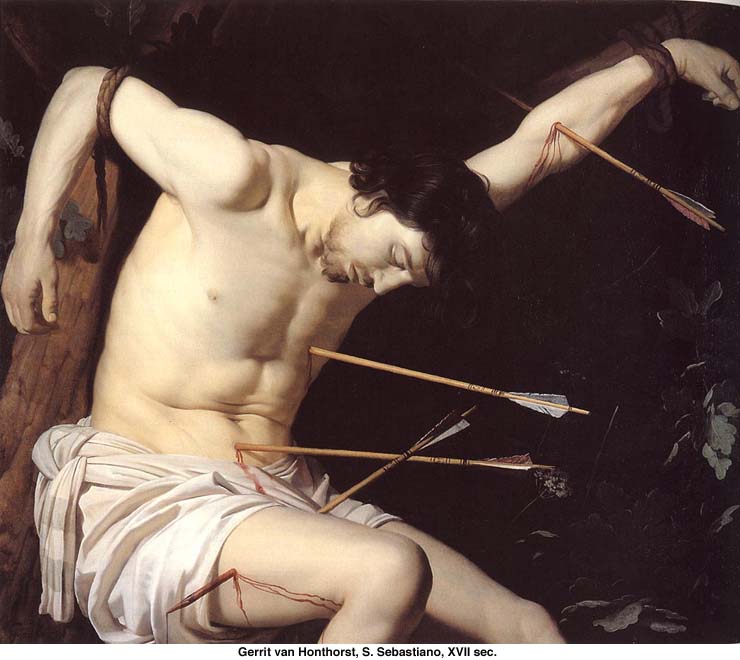
Leave A Comment
You must be logged in to post a comment.